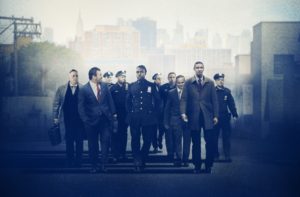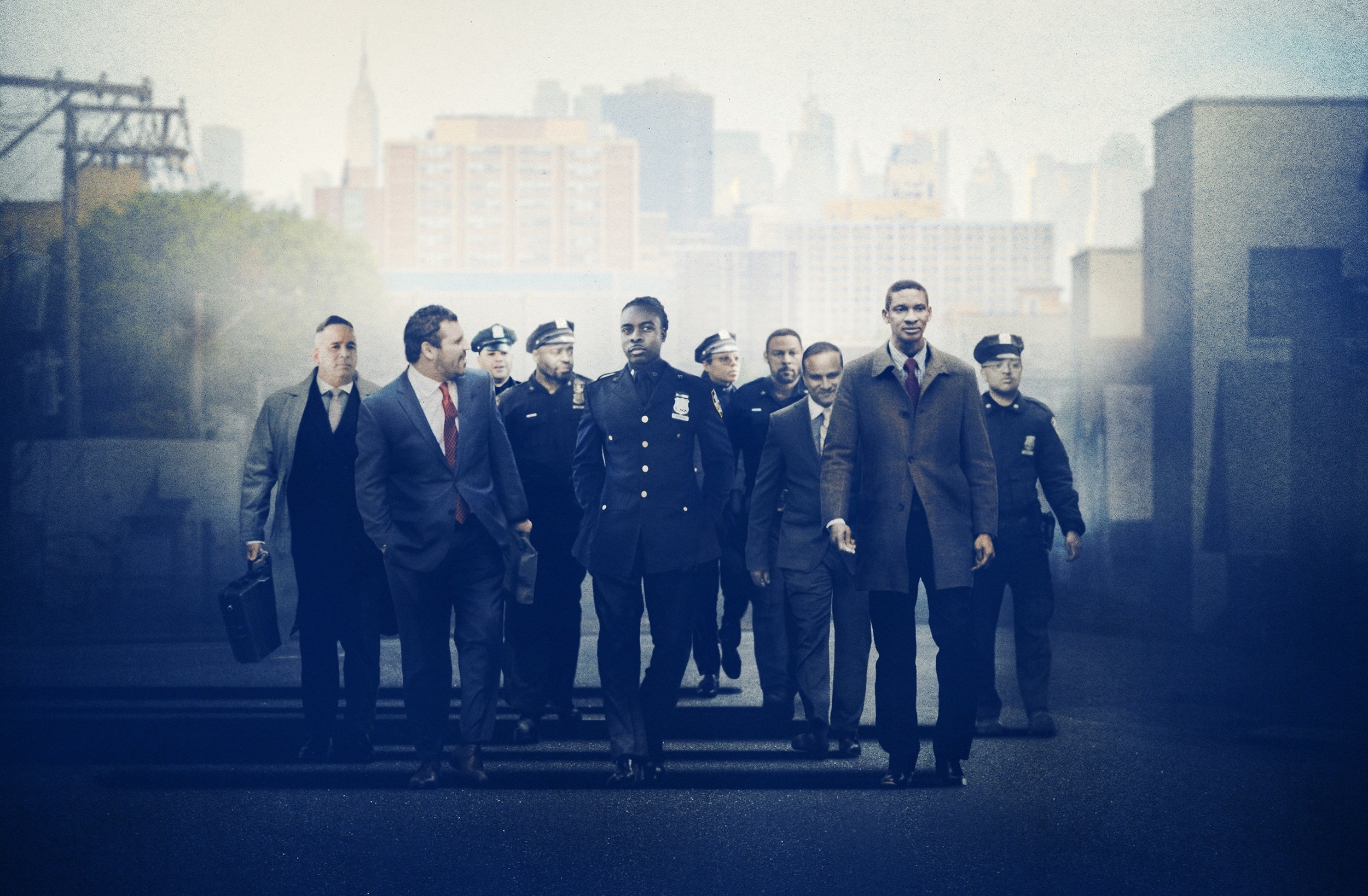Police accountability and criminal justice reform have rightfully been the topic of much concern and debate over the last few years.
One aspect of the complex web of issues in this vein, particularly in New York City, is police quotas leading to disproportionate arrests and citations of people of color, often on unsubstantiated charges that are later dropped.
Crime + Punishment is a documentary that examines this issue in New York City from the perspective of New York City Police Department officers who disagree with this system and have faced consequences for refusing to participate, and then, for speaking out against it publicly.
The film screened at the Seattle International Film Festival in 2018 as well as many other festivals throughout the country, winning awards at Sundance Film Festival, Greenwich International Film Festival, and the Independent Film Festival of Boston, among others. It is also on the shortlist of semifinalists in the Best Documentary category for the Academy Awards, commonly referred to as the Oscars, for which the final nominees will be announced on January 22.
The NYPD is the largest police force in the country, with over 36,000 uniformed officers. Quotas, or targets for numbers of people arrested or given a criminal citation that officers are expected to meet, have been officially banned since 2010. In practice, they have continued unabated, many officers say.
Sandy Gonzales is one of those officers.

Release Year: 2018
Director: Stephen Maing
Running Time: 1h 52min
Watch trailer
Gonzales, a twelve-year veteran of the NYPD, has been getting in trouble for not meeting quotas. His lieutenant told him “you need to catch up with everybody else.”
Gonzales talked with a few other officers about suing the department for still having quotas, and for targeting and harassing officers that refuse to comply with them.
Gonzales got reassigned from his patrol car to a foot post, and was told to stay in the same location all day.
“It’s like putting a kid in timeout, for other cops to see me as an example,” he said. Partway through the day, his sergeant pulled up to check on him, and then wrote him up for being out of uniform; Gonzales wore his NYPD winter hat, but officers are only supposed to wear it on days that it is below freezing, and it was not quite that cold on the day that Gonzales had stay outside standing in one spot for hours.
At the Latino Officers Association Headquarters, the president talked about the plan to pursue a class action lawsuit. He also told officers planning to participate in the lawsuit to “make sure you are wearing your [bullet proof] vest all the time now,” in anticipation of the retaliation that could take place against officers for speaking out.
Manuel Gomez is former Army Intelligence officer and member of the NYPD who is now a private investigator. He says he was pushed out of the NYPD for “refusing to keep his mouth shut” about all the corrupt things he saw.
He now works with citizens to expose quotas.
He talks with young black and Latino men who have been victims of “stop and frisk” and have been arrested multiple times on charges that have all been dismissed.
Gomez explains to people how to make complaints through the NYPD system about unfair arrests, even helping some to navigate the automated phone line and leave a voice message. He also works with people, such as Pedro Hernandez, who are being held in custody while awaiting trial.
Hernandez was being held on Rikers Island, with bail set at $250,000, for a shooting he did not commit. His mother hired Gomez to help prove his innocence and get him out. Prosecutors kept delaying his trial. They offered him multiple plea deals, but Hernandez declined, maintaining his innocence.
The officer that arrested Hernandez for the shooting regularly exceeds quotas, and is known in the neighborhood for targeting various young men in the community.
He had previously arrested Hernandez six times before, all charges that could not hold up and were later dismissed.
Gomez was eventually able to find video that showed the shooting Hernandez was charged with, and it is clear in the video that he was not the shooter.
However, Hernandez spent over a year in jail before the District Attorney finally dismissed the charges against him.
It is this type of injustice, the targeted harassment of young men of color, that led multiple officers to file their lawsuit in March of 2015. These officers are people of color themselves, who were uncomfortable carrying out racist, illegal policy, and were then retaliated against by the department for not complying.
One of the other officers participating in the suit was Felicia Whitely, who had been on the job nine years. In a conversation with the filmmaker about Eric Garner, who was killed when an NYPD officer used a banned choke-hold on him during an arrest for selling loose cigarettes, Whitely explained the connection, noting: “Eric Garner was killed because cops are chasing for activity to meet the quota.”
People are arrested for minor offenses, or offenses they didn’t even commit, just so that the officer can meet their quotas.
The officers who filed the lawsuit were dubbed the “NYPD 12” when they did their first television interview. But with the added attention to their lawsuit, the officers faced even more retaliation. Whitley had the overtime she had been working taken away. Another officer was given a falsified and negative evaluation. Another was split from working with his regular partner and put on midnight shifts.
The City of New York filed a motion to dismiss the lawsuit, and the police commissioner denied that a quota system was being used. Unfortunately some of the parts of the lawsuit were dismissed, with an explanation that the court did not have jurisdiction. At the time the film was completed, the lawsuit was still in limbo.
A quick search turned up a few articles that mentioned the case is still ongoing. A class action lawsuit filed by people who had been unfairly charged was settled in 2017, however, and part of that settlement required the NYPD to send notice to all officers that quotas are banned. In early 2018, the commissioner followed that up with an additional on-line training about the quota ban that all officers had to take.
But as members of the NYPD 12 state in the film, the official statements and memos don’t really matter if lieutenants and other precinct leaders are still enforcing quotas in practice, which there is incentive to do since over $900 million of the city budget comes from revenue from arrests and summonses. As Edwin Raymond of the NYPD 12 said, “law enforcement uses black bodies to generate revenue.”
Like most other police and criminal justice reforms, it seems this issue might, unfortunately, take some time to be solved, while people of color continue to unfairly suffer the consequences. The team at NPI strongly recommends watching Crime + Punishment to learn more about this critical issue.
The film is available for on demand screening at Hulu, for which there is a link on the film’s website, as well as a listing of other screenings throughout the country (but note that this list does not seem to be totally up to date, as it currently lists as showing at the AMC Pacific Place in Seattle, but on the AMC website there are no showtimes listed at any Seattle-area theaters).

